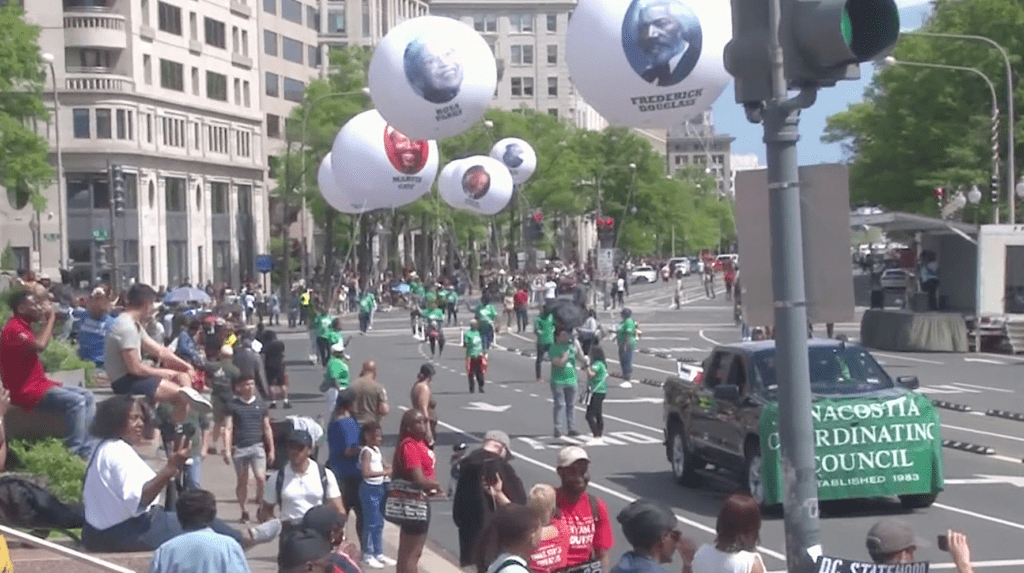Emancipation Day Weekend Celebrates D.C.
By • April 17, 2023 0 1622

Today, Washingtonians observe a unique American holiday that’s part of their history but affects the rest of the country, too.
D.C. Emancipation Day honors the day, April 16, when President Abraham Lincoln signed the Compensated Emancipation Act of 1862, which freed more than 3,100 enslaved persons in the District of Columbia. It was the abolition of slavery in Washington, D.C. — months before the Emancipation Proclamation, which liberated those enslaved in the Confederacy.
“On this day 161 years ago, 3,100 enslaved were granted freedom in D.C.,” Mayor Muriel Bowser noted over the weekend. “Today, we remember their fight and impact on our great city. We continue that fight as we press for full representation and full democracy in the District.”
As a D.C. holiday with most government services taking a day off, it pushes forward the filing deadline for federal incomes taxes.
Only recently has the holiday featured a parade, concert and general celebration.
On Saturday, there was a parade along Pennsylvania Avenue, a concert at Freedom Plaza (after an intense downpour) and fireworks in the evening. On Sunday, the D.C. Office of Cable Television, Film, Music and Entertainment, and the Department of Parks and Recreation hosted Family Fun Day at Black Lives Matter Plaza, 16th Street NW. Today, events continued at the National Museum of African American History and Culture.
In Georgetown, there was a solemn, but no less joyful, ceremony on Sunday at the Mount Zion and the Female Union Band Society cemeteries, near 27th and Q Streets. “These are the oldest Black cemeteries left in Washington, where enslaved, freed and free Blacks are interred,” says Lisa Fager, Executive Director, Black Georgetown Foundation, Inc. “We think it important to honor this day and those that celebrated each year until the early 1900s in Washington, D.C. We must not forget. This was the movement to the Emancipation Proclamation and Juneteenth.”
The Sunday morning event included a libation ceremony, reading of the names to honor the dead and a talk by Carroll R. Gibbs, historian and co-author of “Black Georgetown Remembered.”

